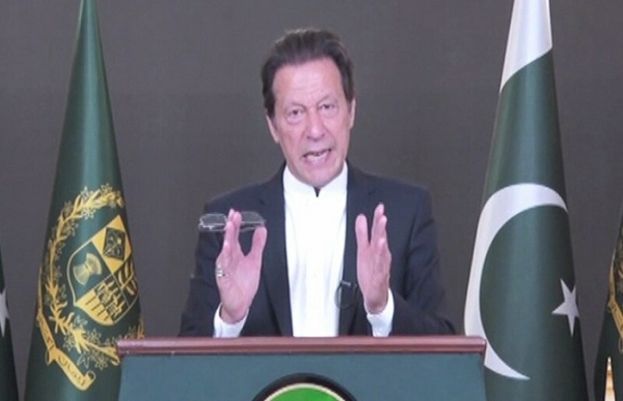
At the start of his speech, the premier said the package would be "the biggest welfare programme in Pakistan's history", which he said would take the country towards becoming a welfare state.
He said the PTI government had inherited a difficult economic situation, and thanked Saudi Arabia, the UAE and China for providing the help that saved Pakistan from defaulting.
"We had to approach the IMF, we were stabilising the country for a year and then corona came," he said, lauding the NCOC for taking data-based decisions that helped Pakistan's coronavirus fight.
"We were internationally acknowledged for being one of the few countries to deal with Covid-19 in the best manner."
Fearing unemployment, the premier further said, the government imposed "small and smart" lockdowns instead of completely shutting down the economy. "We especially saved agriculture and construction, which create jobs in urban areas and [increase] exports," he added.
Recounting the government's incentives for the construction and agriculture sectors, he said the country's economic indicators were "positive".
Prime Minister Imran acknowledged that inflation was a major problem in the country, saying the media and the opposition had the right to criticise the government.
But he said the media "needs to balance and think whether inflation is rising because of our government or due to rise in prices in the international market".
Quoting rising inflation figures in Europe and the US, the premier said oil prices had risen by 100 per cent in the last 3-4 months internationally, while they had increased 33pc in Pakistan.
"When you say petrol is expensive, it is the cheapest in Pakistan, but we will have to increase the price because otherwise our deficit will increase and we will be further burdened by debt," he added.
Prime Minister Imran further said the price of wheat in Pakistan was half of that in India and Bangladesh, stressing that the government was "doing our best so that you are not burdened much".
He announced a subsidy programme to mitigate the impact of rising prices, saying it would provide relief to 20 million families and would affect 130m people.
Under the package, he said, 30 per cent subsidy would be given on ghee, flour, and pulses for the next six months.
"You will be able to buy flour, ghee and pulses at 30pc lower prices," he announced.
The package, worth Rs120 billion, is being given jointly by the federal and the provincial government. Prime Minister Imran said the package would be extended in the future if the conditions allowed.
Aside from the above, the prime minister noted that the government's flagship Ehsaas programme worth Rs260 billion was already functioning with the aim to benefit 12 million families.
"We are also launching the Kamyab Pakistan [programme] with a funding of Rs1,400 billion to give interest-free loans to 4m families," he said.
The government is also providing skills education to 200,000 people as well as 6m scholarships and school stipends, the premier added.
Additionally, he said, the entire population of Khyber Pakhtunkhwa had been given health cards, while the same programme was likely to be launched in Punjab in December.
In his address, Prime Minister Imran also appealed to industrialists and "seths" to increase the salaries of their employees and share their profits will labourers.
source https://www.suchtv.pk/pakistan/general/item/109225-pm-imran-announces-biggest-welfare-package-in-pakistan-s-history-to-mitigate-inflation-impact.html
No comments:
Post a Comment